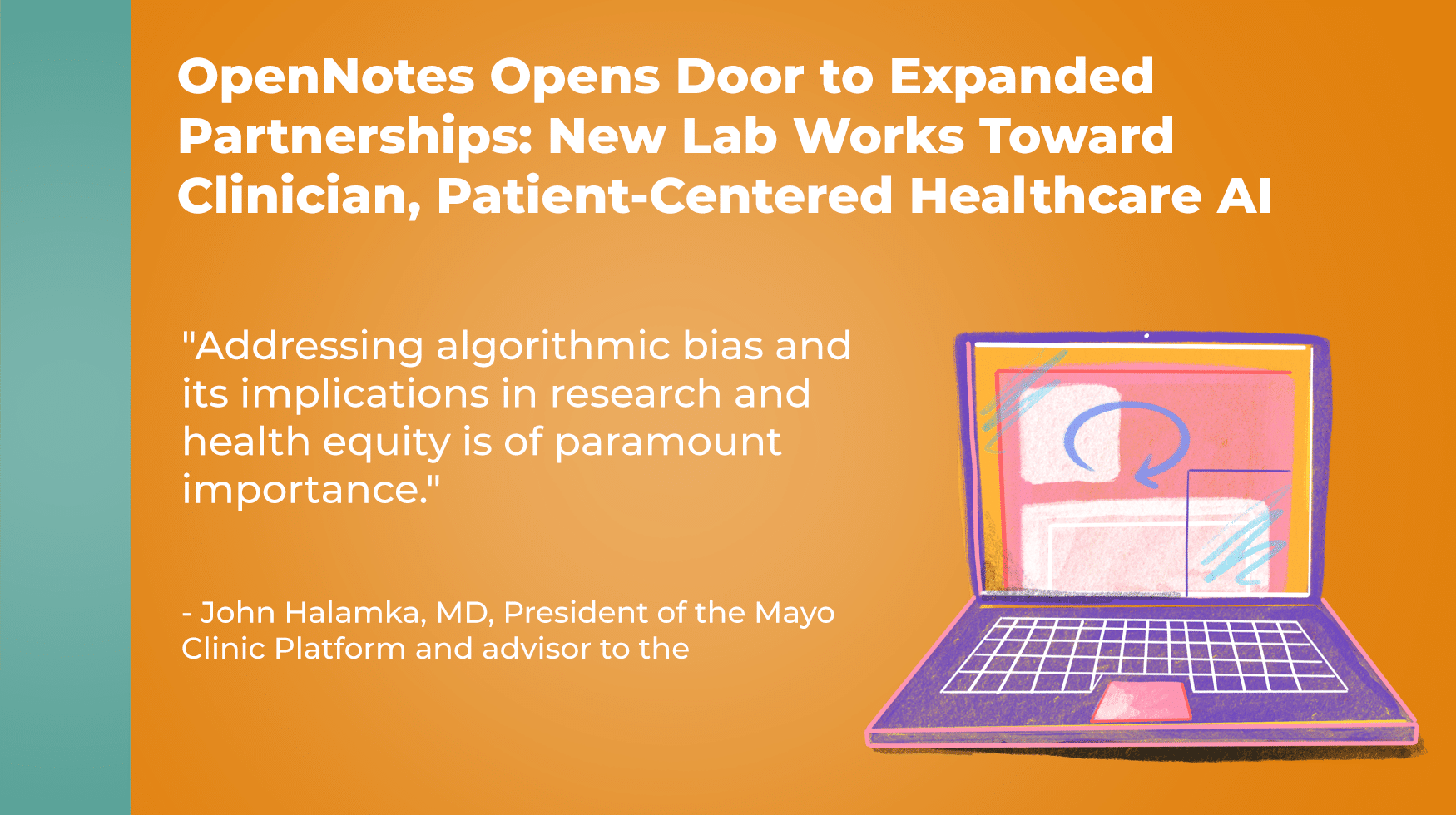
Contact Information
Amanda Norris
anorris [@] bidmc.harvard.edu
LOS ANGELES – February 27, 2024 – Drawing upon 15 years of advocacy and research, OpenNotes unveiled today the OpenNotes Lab, the organization’s new effort to explore novel approaches to investigating and designing interventions across the realms of clinical documentation, medical records and patient safety and engagement. Prior to the enactment of the U.S. 21st Century Cures Act information blocking rule of 2021, OpenNotes helped lead a movement showing that patients, care partners and clinicians benefit from more transparent communication in health and care.
The announcement—made today at ViVE, an event tailored for digital health decision-makers— underscored OpenNotes’ openness to collaborating with developers of health information technologies, in addition to reinforcing its commitments to existing partnerships with patient and clinician advocates, and health systems. The OpenNotes Lab will delve into the intersection of emerging technologies and patient-clinician relationships.
“Through the Lab we’ll work closely with the developers of clinical documentation technologies and investigate new avenues for translating our extensive experience into processes that help patients and clinicians alike,” said Catherine M. DesRoches, DrPH, Executive Director of OpenNotes at Beth Israel Deaconess Medical Center (BIDMC) who is also an associate professor of medicine at Harvard Medical School.
Now that open notes are a routine part of medical practice, the OpenNotes Lab will establish an environment to test new initiatives in partnership with clinicians, patients and developers. Advocating for effective and patient-centered deployment of artificial intelligence (AI) is one of the Lab’s primary objectives.
“Addressing algorithmic bias and its implications in research and health equity is of paramount importance,” said John Halamka, MD, President of the Mayo Clinic Platform and advisor to the OpenNotes Lab. “In my 40 year healthcare IT career, I’ve witnessed firsthand the impact of open notes. OpenNotes’ wide experience and rigorous approach to inquiry will facilitate unique collaborations among patients, clinicians and technology partners in meaningful ways.”
OpenNotes is recognized internationally for its longstanding commitment to promoting transparency in healthcare. After an office visit, doctors, nurses and other health care professionals write notes that summarize important information about patients. These notes become a part of a patient’s medical record. When a note is shared it becomes an ‘open note.’ Notes are the story of a patient’s health and help to make sense of other elements in the medical record.
“Fifteen years ago, when we began inviting patients to review clinical notes, we were seen as radicals,” said Tom Delbanco, MD, co-founder of OpenNotes at BIDMC who is also the John F. Keane & Family Professor of Medicine at Harvard Medical School. “Since then, we and many others have learned that the benefits for patients, families and clinicians far outweigh the risks. We need now to build transparency seamlessly into the fabric of care. Working with new technologies and partnerships will help us make that happen.”
Beginning February 27, 2024, information about the OpenNotes Lab will be available at https://www.opennotes.org/lab.
###
Dr. Catherine DesRoches is available for interviews.
About OpenNotes
OpenNotes is an international movement spreading, studying, and teaching transparent communication among patients, families, and clinicians. When clinical notes are shared with patients, they are called ‘open notes.’ OpenNotes is motivated by evidence indicating that when health professionals offer patients and families ready access to clinical notes, the quality and safety of care improves. OpenNotes focuses on research and education, is a not-for-profit, and is based at Beth Israel Deaconess Medical Center, a major Harvard Medical School teaching hospital. https://www.opennotes.org



